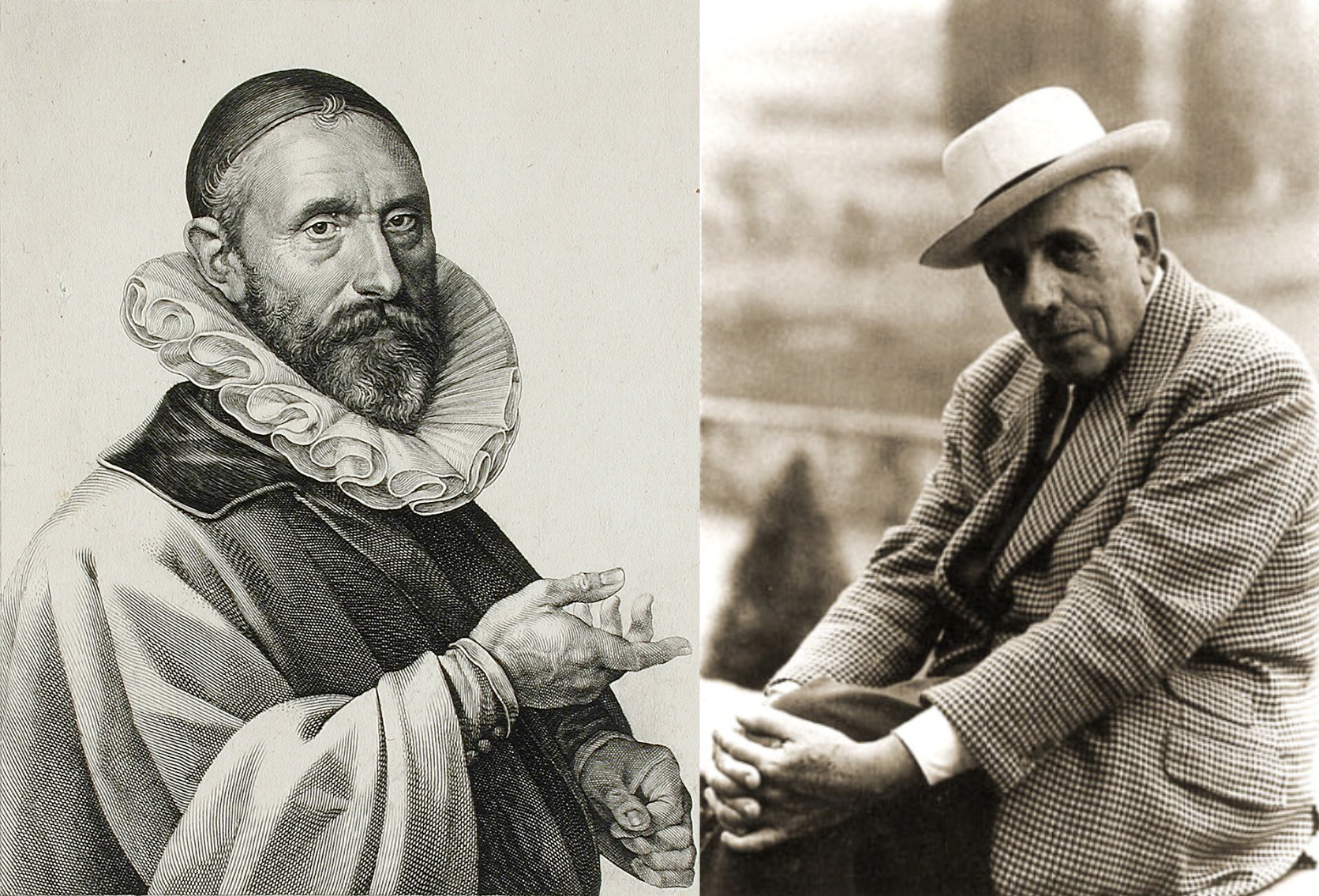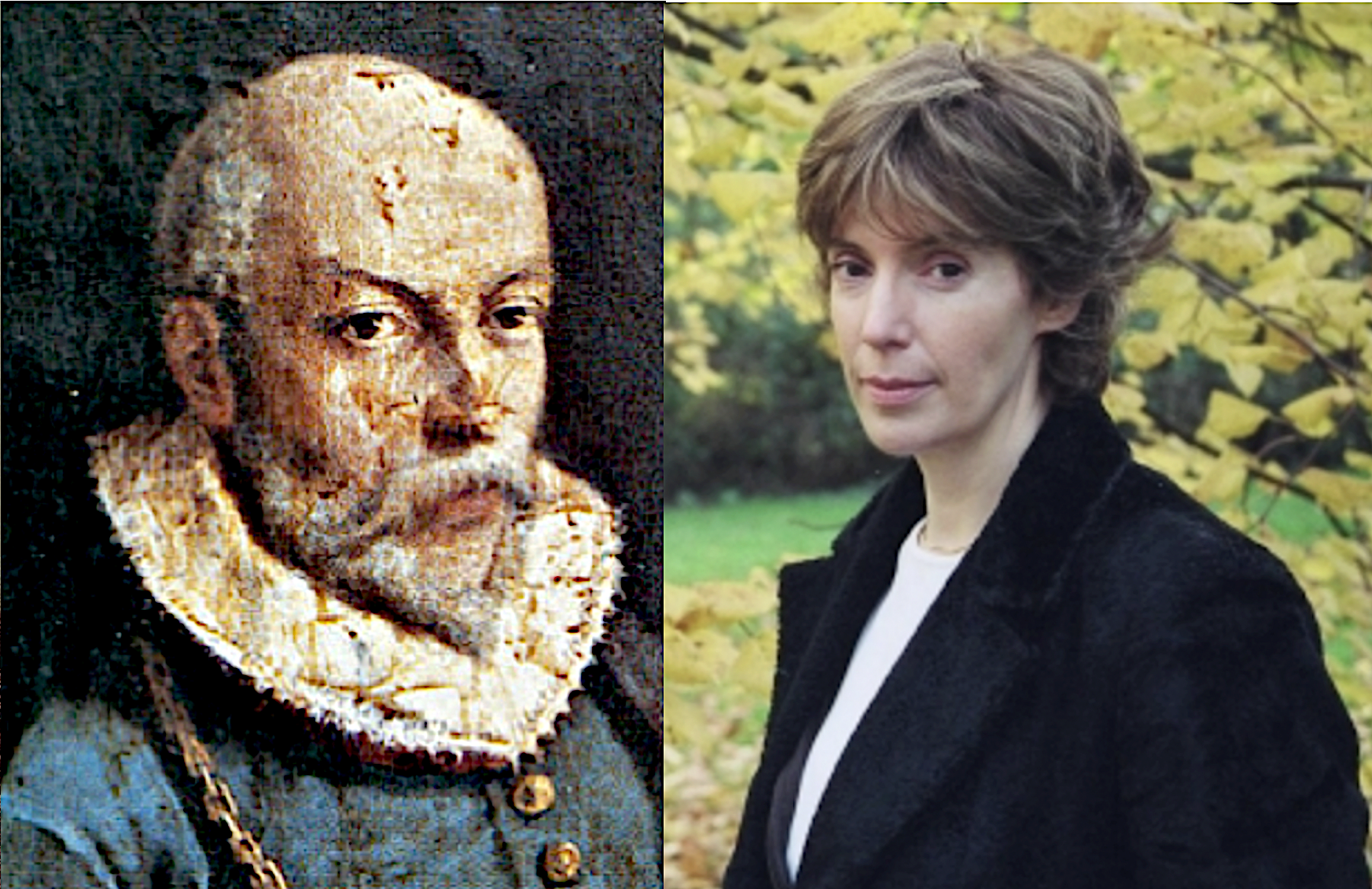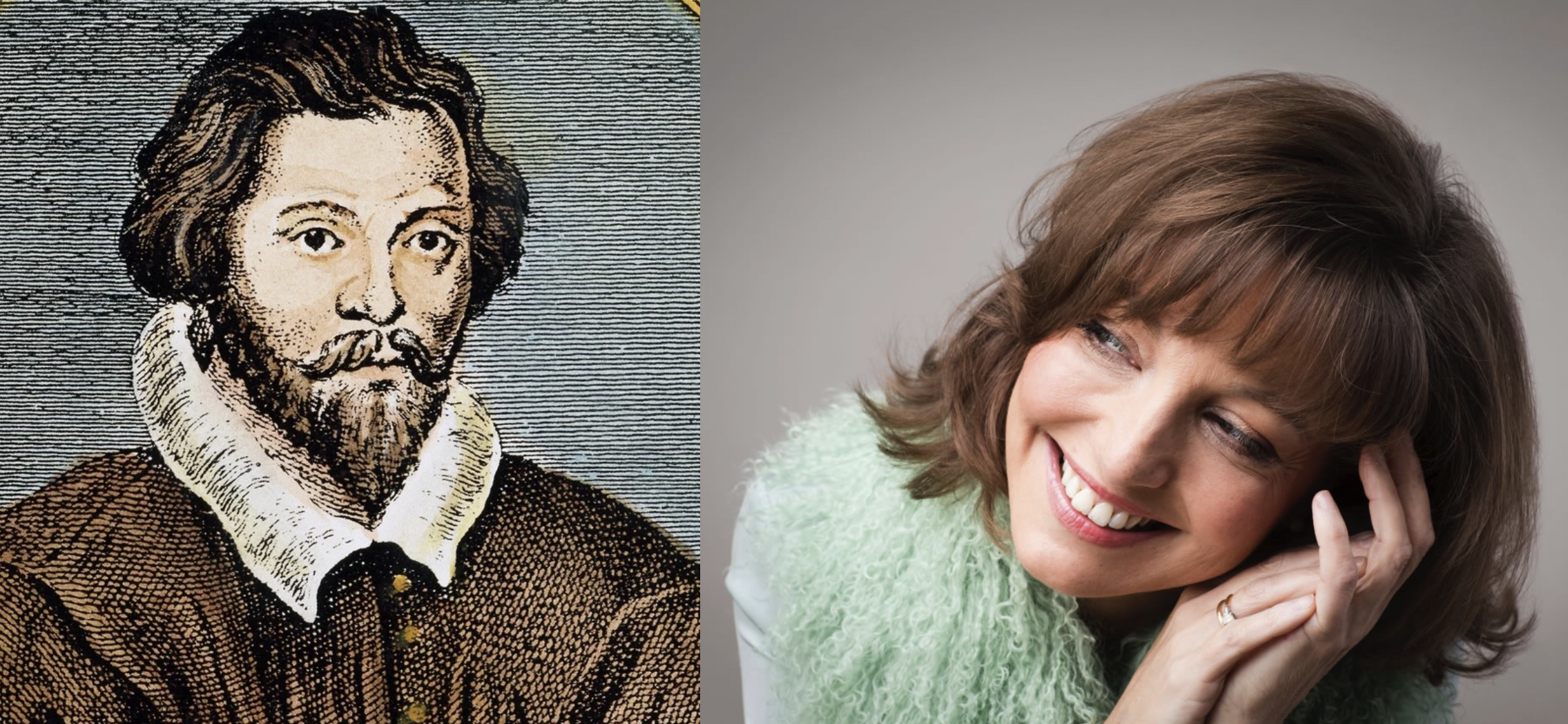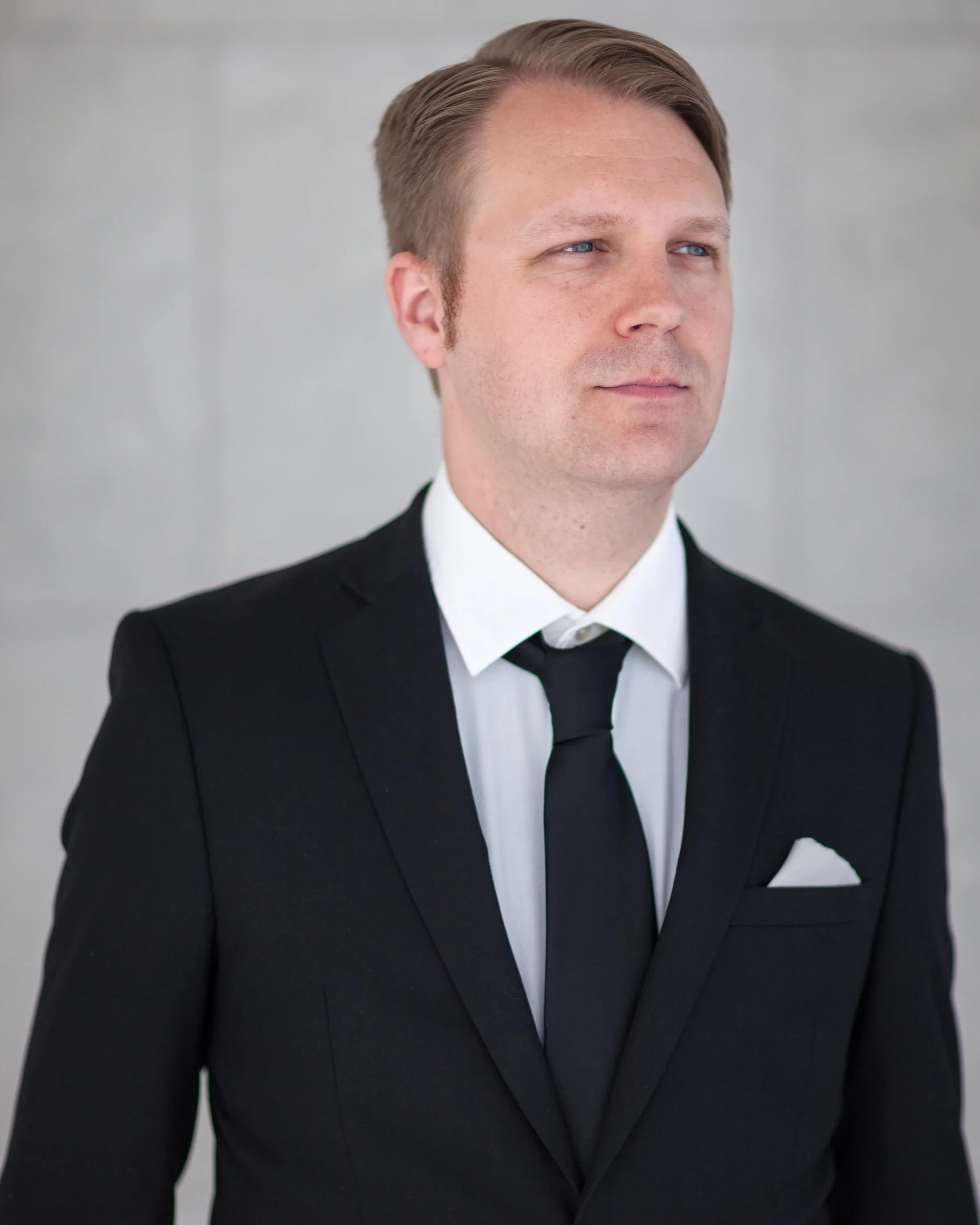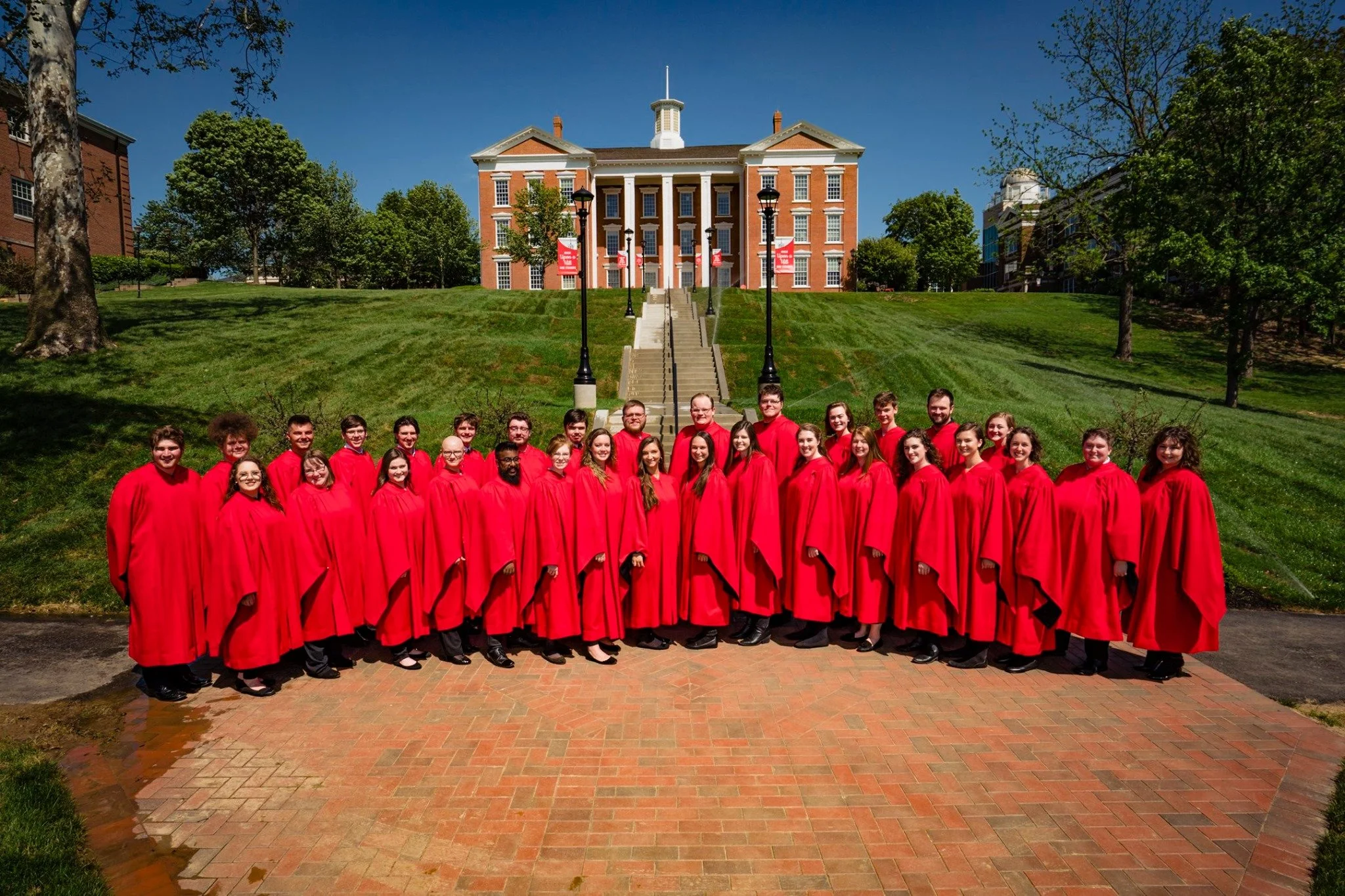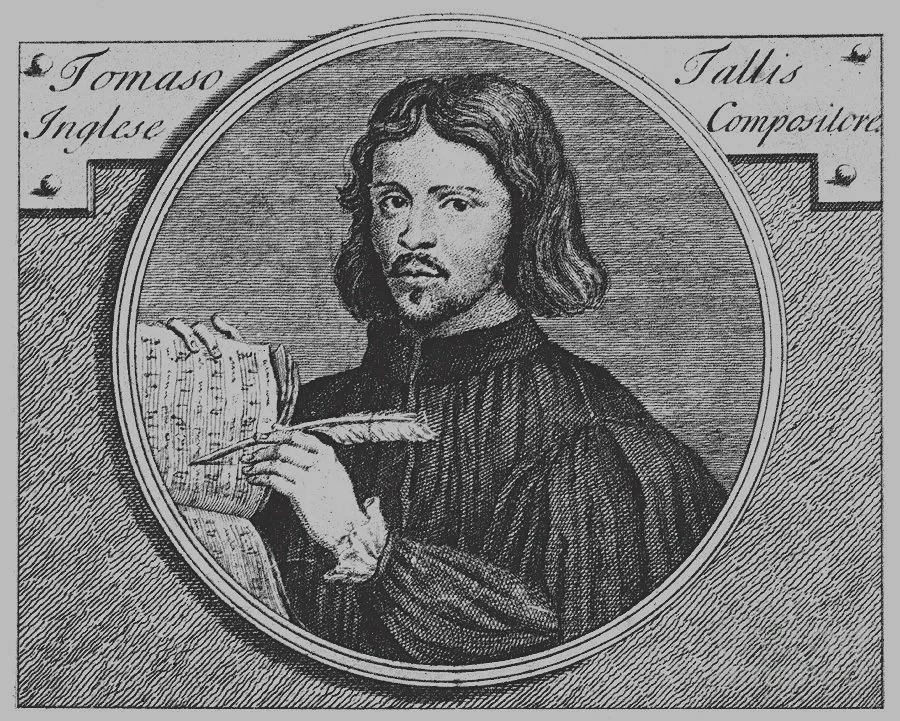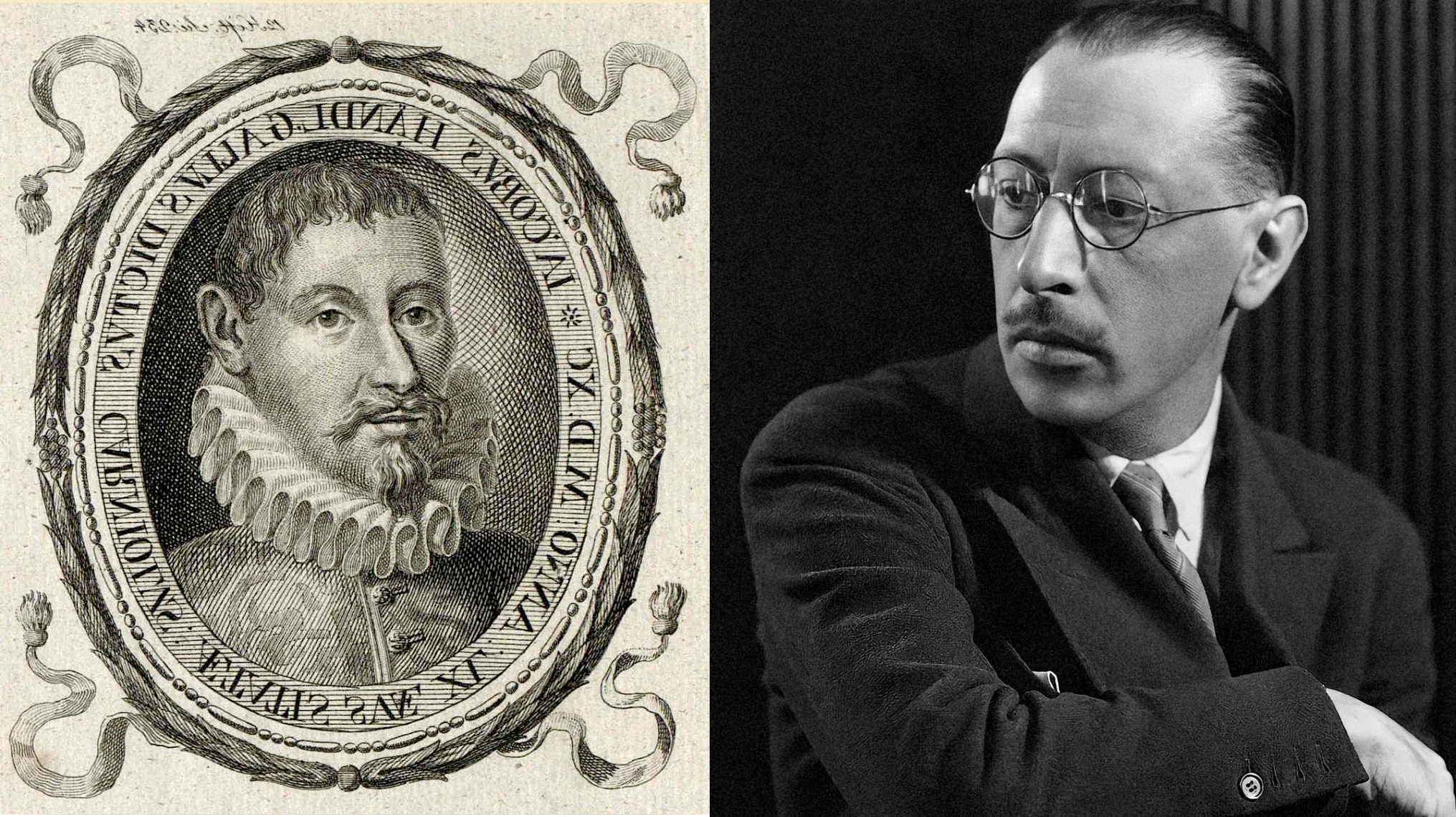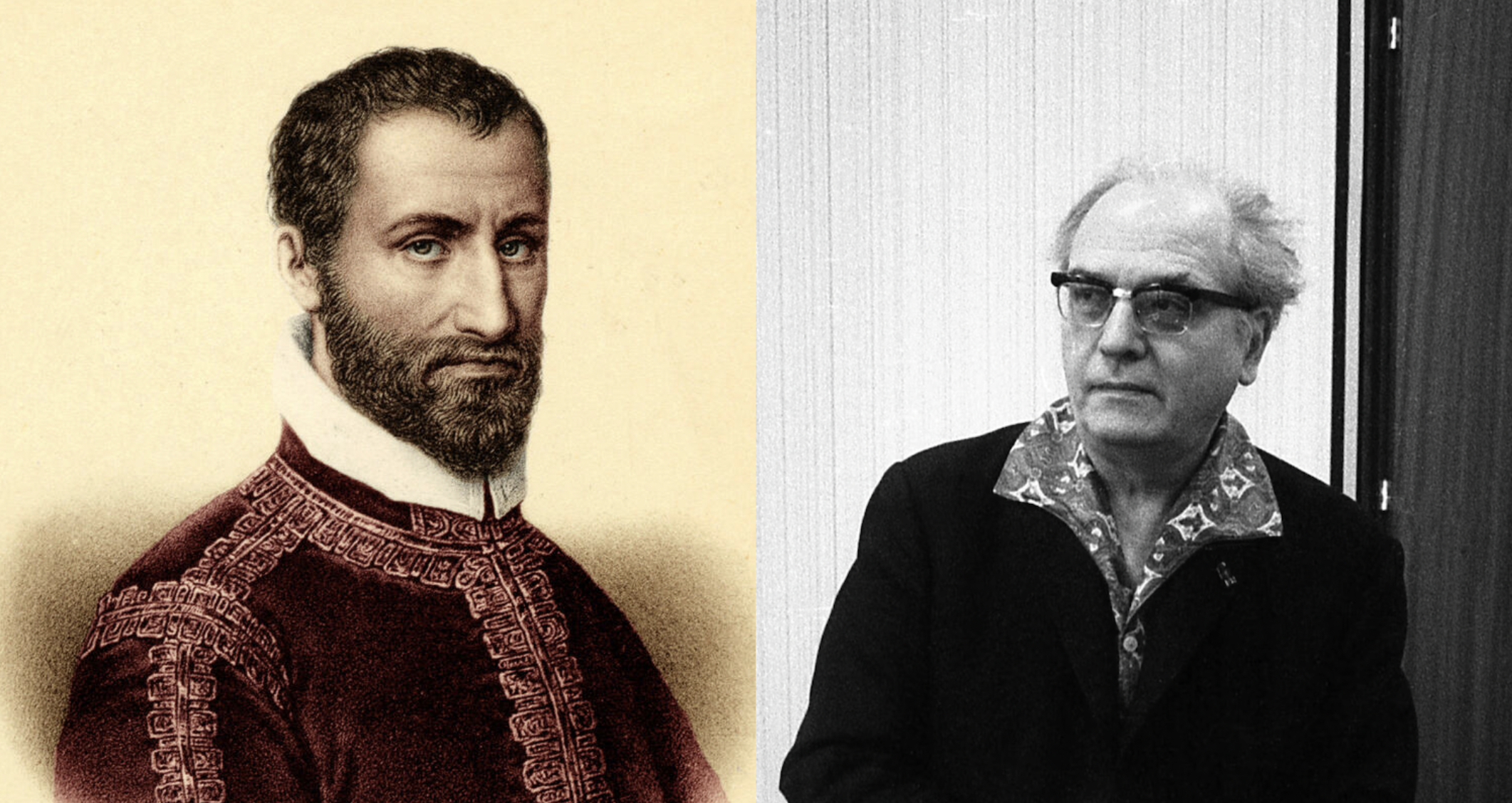EXPLORING THE OLD THROUGH THE NEW
Spire Chamber Ensemble Presents Reflections
By Patrick Neas, KC Arts Beat
Jan Pieterszoon Sweelinck and Francis Poulenc
Ben Spalding, artistic director and founder of Spire Chamber Ensemble believes that contemporary music can help us hear music from earlier times with new ears and fresh appreciation. That’s the premise of Reflections, a concert to be given by Spire Oct. 4 at Redemptorist Catholic Church and Oct. 5 at Visitation Catholic Church. The concert is a collaboration with William Jewell College Choirs.
“I've actually had this idea in my back pocket for over a decade,” Spalding said. “What I think is really fascinating is to take a look at gems from the Renaissance, the golden era of choral music when thousands of pieces were written, and juxtapose those with modern settings of the exact same text and put them together without pause. This whole program is designed to showcase a Renaissance piece and then immediately follow a modern reflection on that same text.”
Spalding says it’s like a mirror view that looks back but also looks into our modern time. The concert will begin with a perfect example of this reflectiveness, the Christmas motet Hodie Christus Natus Est set by the Renaissance composer Jan Pieterszoon Sweelinck and 20th century French composer Francis Poulenc.
“Sweelinck straddles the late Renaissance and early Baroque,” Spalding said. “He was a fantastic organist as most composers of that time were. I think his music is very ecstatic. What's fascinating about his music is you can see the Baroque starting to form. Music history didn't happen all of a sudden. Like we’re in the Renaissance and all of a sudden we're in the Baroque. There's always a transition period throughout all of our written music history. ”
Poulenc, with his puckish and witty music so rooted in the French cabaret, seems, on the face of things, to be the antithesis of a pious late Renaissance composer.
“Poulenc was really interested in small rhythmic devices,” Spalding said. “Sweelinck was starting to go to the Baroque when they also knew that certain motives or little pieces of music equaled certain emotions. I like to call them musical emojis. We all send emojis to people to reflect a certain emotion. Well, these composers knew that if they did a certain interval or a certain rhythmic figure that it would elicit emotion. Poulenc does that as well. He invents them and twists them and puts them upside down and on their head.”
Spalding is also going to pair Poulenc with another unlikely composer, Tomás Luis de Victoria. One of the greatest composers of the Spanish Renaissance, Victoria is famous for his lush polyphony, which took the monody or single line of Gregorian chant and added multiple lines to create an interplay of voices and an ethereal, soaring sound.
Spire will perform perhaps Victoria’s most famous work, O Magnum Mysterium.
“It is really an amazing study on line,” Spalding said. “If you think about dolphins swimming, they may leap up, and then maybe another one leaps up even farther or maybe one leaps out of the water just a little bit. Sometimes they do it in pairs. Sometimes, if you're really lucky, you'll see several lines going together. Maybe if you're really, really lucky, three or four. And that's polyphony. There's a rise and fall to each line. I find Victoria’s music so intriguing.”
Spalding says that O Magnum Mysterium is popular with college and amateur choirs, but that it will be a different experience to hear it performed by a professional choir.
“It's like the difference between cruising in a normal sedan, and all of a sudden you’re in a brand new Ferrari racing down the street. That's what Victoria will sound like with us. Especially when we get to share it in these beautiful churches.”
After contrasting Victoria and Poulenc, Spalding will set Victoria alongside the contemporary British composer Cecilia McDowall.
“She is a wonderful composer,” Spalding said. “What I love about her story is that she didn’t start composing until she was beyond 40. I think she probably had the desire, but it took the right kind of culmination of things in her life to work out. But since, she has produced some amazing choral music, a lot with choir and organ. She writes very colorful harmonic language. She’s all about painting sonic pictures.”
Tomás Luis de Victoria and Cecilia McDowall
Following Victoria and McDowall is William Byrd, one of England’s greatest composers. He was a Catholic writing music during the reign of Queen Elizabeth, a time when Catholicism was being suppressed in England. Byrd’s enormous talent helped him find favor with the queen. In fact, he wrote music for both Catholics and Protestants. Spire will perform the Kyrie from one of his Catholic masterpieces, the Mass for Five Voices.
“William Byrd is one of my favorite composers,” Spalding said. “In fact, he might be a desert island top five. I think his music will sound familiar to audiences. With William Byrd you can just sit back and kind of let the sound wash over you. There's nothing quite like it.”
Spalding will reflect Byrd’s music in that of Roxana Panufnik.
“She’s the daughter of the famous Polish composer Andrzej Panufnik,” Spalding said. “She also writes polyphony, but it's polyphony in a crowded elevator. You have all of these lines, which she actually takes from Byrd, but she stacks them on top of each other in really fascinating ways. You’ll think that sounds just like Byrd, but the moment your brain hears that, she piles other lines on top of it. It is just a sonic wash. And it's really fascinating music. Like Byrd, there's nobody quite like her.”
William Byrd and Roxana Panufnik
The centerpiece of the concert is one of the greatest works of the Renaissance, or, indeed, the entire classical repertoire: Spem in Alium by Thomas Tallis. It is the only work on the program that is not paired with a contemporary take. For this massive choral work, Spire will be joined by choirs from William Jewell College led by Lawrence Abernathy, who is serving as the college’s interim director of choral studies.
“It's a great opportunity for these students to sing a work that is almost never done,” Spalding said. “I don't know if it's ever been done in this region because of the sheer complexity and the sheer amount of forces you need for this monumental undertaking.”
Spalding says that the words of Spem in Alium (“I have never put my hope in any other”) taken from the book of Judith sum up the concert.
“It's a piece about hope, and I think our whole program is about hope,” Spalding said. “What does it mean to look beyond something that maybe we don't understand or look beyond ourselves, look into our fellow neighbor, our fellow community? So the central piece of the concert, Spem in alium, I think is a really cool anchor because we have hope woven throughout.”
Ben Spalding
William Jewell College Choir
Thomas Tallis
After Tallis’s magnum opus, the William Jewell choirs will have a chance to perform by themselves. They’ll sing two settings of Ave Maria, one by the late Renaissance composer Jacob Handl, who died in 1591, and the other by one of the 20th century’s most important composers, Igor Stravinsky. Noted for his groundbreaking modernist ballets like The Rite of Spring, Stravinsky was also an admirer of Renaissance music, like that of Carlo Gesualdo.
“Renaissance music was very influential on Stravinsky,” Spalding said. “And I think that is apparent in his Ave Maria setting. In this program you’re kind of omnipresent. Your ear is hearing things in the past, but you’re also hearing things that are very fresh today.”
Spire then returns to the music of Byrd, with whom Tallis shared one of the most remarkable partnerships in English music history. These two Catholic composers deftly navigated their way through fraught religious waters, and, remarkably, were granted a joint monopoly on music printing in England by the very Protestant Queen Elizabeth.
Byrd’s very Catholic hymn, Ave Verum Corpus (“Hail, True Body”) will be accompanied by Roderick Williams’ setting. Williams is a contemporary British baritone and composer whose music is part of the great British choral tradition.
Jacob Handl and Igor Stravinsky
Hieronymus Praetorius is another composer who straddles the late Renaissance and Baroque. Although a German Lutheran composer, his music often has an Italianate grandeur. His glorious setting of the Easter hymn Tolerunt Dominum meum (“They have taken away my Lord”) will be paired with an Alleluia by none other than Ben Spalding himself.
“The last words of the Praetorius are Alleluia, so I wanted a modern reflection on just the word Alleluia,” Spalding said. “What I've done is create a double choir motet. I wanted something that would challenge Spire about as far as we could push it. So there are parts that divide into 18 plus divisi, each choir divided into eight to 10 parts per choir. You add all that up and you're 18 plus parts. There's a lot of shifting time signatures and harmony. What that does for our listeners is create this kind of anticipation. It has a rising, lifting quality to it. It’s a sheer tour-de-force for the singers.”
The hymn O Sacrum Convivium (“O Sacred Banquet”) is attributed to St. Thomas Aquinas and has inspired many composers over the centuries. Spalding has paired settings by two of the most mystical of Catholic composers, the Renaissance Italian Palestrina and the 20th century French composer Olivier Messiaen.
“Palestrina's polyphony has a mystic quality that maybe some other Renaissance composers didn't quite have as much,” Spalding said. “And I think Messiaen captures that, too. In this piece he creates a timelessness. It's almost like you're in another world when you listen to this music. You're transported somewhere else. It's like you're listening out of space and out of time.”
Spalding points out that the churches in which this music will be performed accentuate those qualities.
“We are going to play with sound and acoustic properties in these beautiful churches,” Spalding said. “You're going to hear sounds from every corner of the church. Sometimes it'll be in small groups, sometimes it'll be in larger forces, sometimes it'll be solos. You will have sound in front of you, behind you and to the side of you. It'll be an aural experience.”
Palestrina and Olivier Messiaen
The concert will conclude with Loquebantur variis linguis ("They were speaking in various tongues”) by Thomas Tallis and a reflection on the Tallis by Ken Burton, which Spalding says will bring the program to a rousing conclusion.
“It’s a text about Pentecost and how all of the people were speaking in different languages at the same time,” he said. “And that is so apparent in Tallis's setting. You'll hear outbursts of somebody speaking this language, and then somebody speaking that language. Tallis was able to capture that kind of chattering quality. Then British composer Ken Burton, somebody who comes from the gospel and jazz tradition, does a reflection on this and takes it, to quote Buzz Lightyear, to Infinity and Beyond!”
SPIRE CHAMBER ENSEMBLE PRESENTS REFLECTIONS
7:30 p.m. Oct. 4 at Redemptorist Catholic Church, 3333 Broadway Blvd.
3 p.m. Oct. 5 at Visitation Catholic Church, 5141 Main St.
$11.37 - $26.90. For tickets and more information, spirechamberensemble.org.

